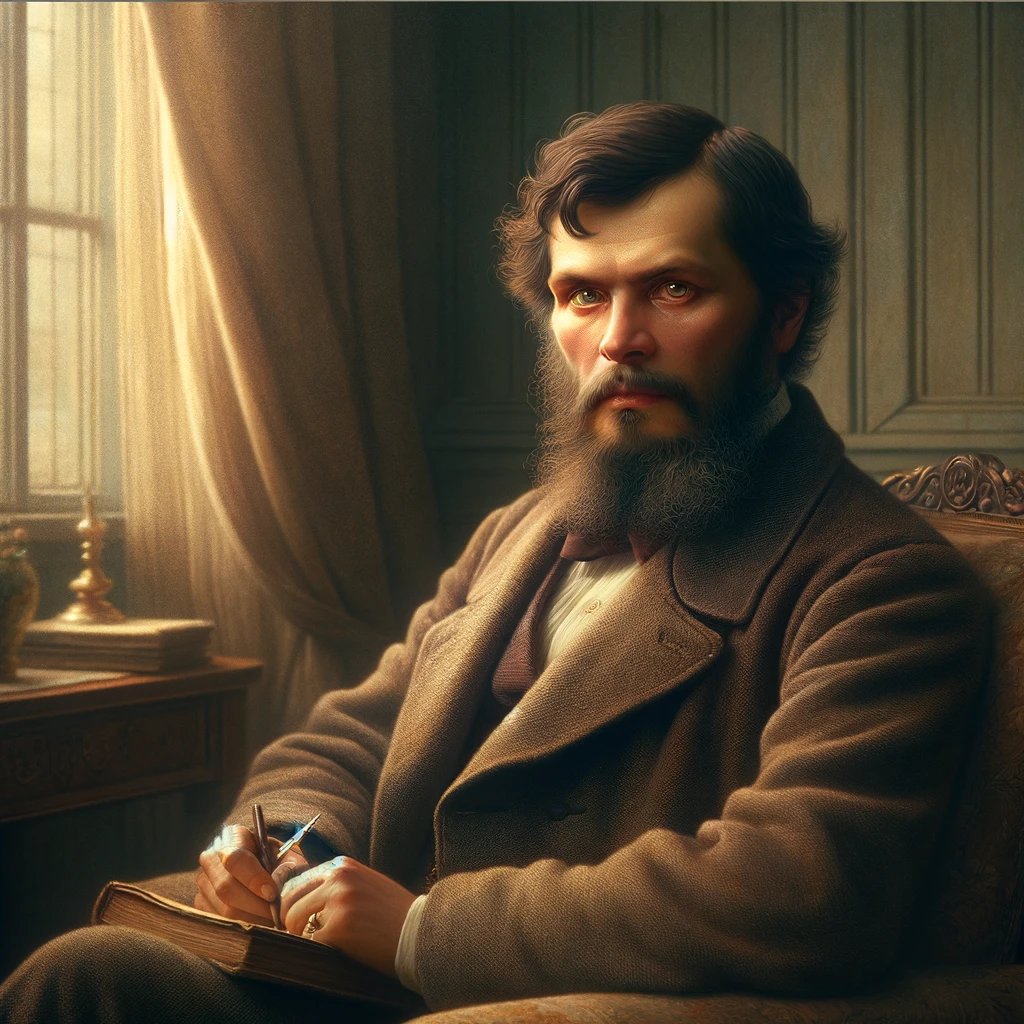Fyodor Mikhailovich Dostoevsky, one of the most important figures in Russian literature, is considered one of the literary geniuses of the 19th century. Throughout his life, he struggled with difficulties, portrayed psychological depths, and reflected the complexity of human nature in his works. Here is the life of this great literary genius with subheadings.
1. Early Life and Youth
Dostoevsky was born on November 11, 1821, in Moscow. His father was a doctor and his mother was a housewife. Although he grew up as a child of a wealthy family, his family’s struggles with economic hardships at a young age deeply affected him. The experiences he gained during this period shaped the themes he would often address in his later works, such as poverty, crime, and the inner world of man.
2. Exile to Siberia and Return
An important turning point in Dostoevsky’s life began when he became involved among young intellectuals opposed to Tsar Nicholas I in 1849 and expressed his dissatisfaction with the state. As a result of this action, he was sentenced to death, but later his sentence was commuted to exile in Siberia. His exile in Siberia played a significant role in maturing his ideas and shaping his literary perspective. He returned in 1859 after about ten years of living in Siberia.
3. Works and Literary Legacy
Dostoevsky made his literary debut with “Poor Folk” in 1846, but he gained real fame with his masterpieces such as “Crime and Punishment” (1866), “The Brothers Karamazov” (1880), and “The Idiot” (1869). He explored universal themes such as human psychology, moral conflicts, and religion in his works. The depth and complexity of his characters established him as one of the greatest writers in literary history.
4. Influence and Legacy
Dostoevsky’s works had a profound impact on both his contemporaries and future generations. His literary style, philosophical depth, and profound observations on human nature sparked debates in the literary world and became the subject of numerous academic studies. Furthermore, Dostoevsky’s works have inspired theatrical adaptations, film adaptations, and many other works of art.
5. Later Years and Death
During the final years of his life, Dostoevsky struggled with health issues, suffered seizures, and faced financial difficulties while supporting his family. Despite all these challenges, he continued to write, and his final works were published posthumously. Dostoevsky passed away on February 9, 1881, after suffering a stroke, but his literary legacy will continue to live on forever.
Fyodor Mikhailovich Dostoevsky, with his exploration of the complexity of human nature and universal themes, made a profound contribution to the literary world. The struggles he faced throughout his life added depth and sincerity to his works, making him unforgettable. His works, still read and studied today, prove that he was truly a unique literary genius.





